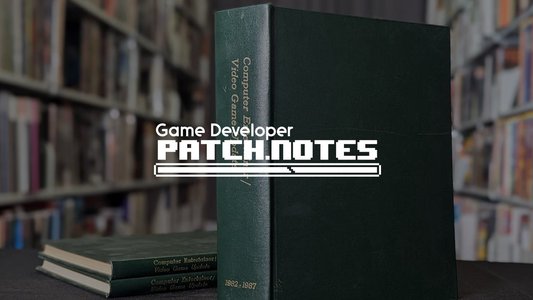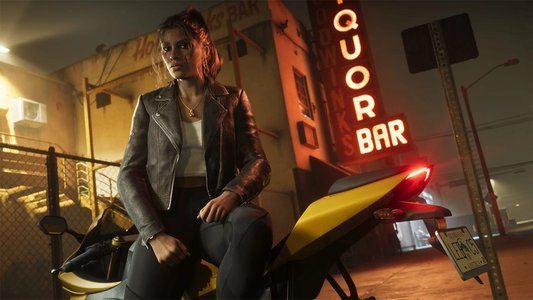It's been an interesting journey for Klei Entertainment and Shank. After the studio's publisher, Nexon Vancouver, shut its doors in 2009, the team went right to work on a 2D brawler with a distinctive visual style. The title appeared in 2010's Independent Games Festival and took off quickly from there -- signed by EA Partners for Xbox Live Arcade, PlayStation Network and PC, with renowned God of War writer Marianne Krawczyk on board. Fortunately, it's a tale that's becoming more and more common these days: Indie developers quickly finding full-scale publisher partners and making a splash before the eyes of the everyday gamer. But it's also a new arena: what's it like for indies to come up against the Metacritic machine for the first time? What changes and what stays the same for developers when an independent game gets really big? We decided to catch up with Klei's Jamie Cheng to ask him some of these questions, now that Shank is well past its late summer launch and received a gamut of critical reception. Often developers focus so tightly on the grueling process of creation and launch, and then the spreadsheet-ticking aftermath of sales data; in this interview, Cheng talks candidly about facets of the tiny-project-gone-big experience that are less-discussed, from connecting with the wider audience to personal experiences. What were your expectations for Shank's launch, and in what areas did you meet them? Any surprises? I expected Shank to be a game which people either loved or hated, and we got that in spades. In fact, it was even more than I expected -- the dichotomy actually baffled me at first. For example, I simultaneously heard that Shank's controls are tight, amazing, and spot-on, and also that they were loose and frustrating. We were determined to really understand the meaning behind that, so I kept watching people play -- especially those who had more trouble with the controls, and we realized that our game favors certain play-styles over others -- in this case, an offensive play-style. Those who attacked often were rewarded a lot better than those who tried to get away. The critics to our controls were spot-on -- there was a hole in our equation that they caught, and I'm glad they did so we can learn and do better next time. Name one way in which you are like other indies and one way in which you aren't. The most important aspect of being indie is freedom -- independence, by definition. In the most important way, we're connected to indies by the fact that we create our own games, our own ideas, and we build it with a passion. I love this question, because it really highlights the differences between all indies. We're all passionate about the medium of games, and we get along precisely because we embrace each others' differences. The obvious difference for Klei is that we carry different responsibilities than most indies. We have staff with families who aren't ready to risk everything for the sake of the craft, at least not yet. So it's my role to allow us to continue to operate in the spirit of an independent -- passionate, authentic, and creating our own ideas -- while still providing a stable environment. It's not easy, but it is incredibly rewarding. Andy Schatz recently said he feels the press holds indies and AAAs to different standards. Do you think this is true? Some say critics are harder on indies because the expectations of those with fewer risk constraints and loftier artistic aims are higher; others say critics are easier on indies because they're more personally invested in 'rooting for the little guy', and it's easier to have empathy for individuals or small teams versus corporations. What do you think? My philosophy is to try and raise the level of conversation with the press and critics. What indies can do better than most is to talk with the press, and explain and discuss, without the PR spin, why design decisions are made. Andy is definitely right in that being indie creates certain expectations -- both good and bad -- and expectations as we know color the experience. If we can improve the communication, then at least we can break down the preconceptions and evaluate our games with better information. Personally, I haven't always been successful at that, and in many cases its due to my own inexperience. Do you feel that when it comes to platforms for indies, mobile and XBLA/PSN are a fairly level playing field, or is one still more viable than the other? If it depends on the title, how? I think it depends on your situation, too. I've often said that mobile is where I would be if I was starting my studio from scratch, but as an established studio I'm at a big disadvantage. We don't have the marketing budget and contacts of a publisher, and yet we have enough overhead that there's significant risk in developing an iOS game. In most markets, incumbents like barriers to entry, and in XBLA/PSN the barrier is actually relatively high -- from portfolio management to large costs associated with development. This makes it an uneven field for indies, but those who overcome the barrier often see big rewards, since their costs are far lower, and their marketing is often better than the competition. As those barriers dissolve, given limited distribution, like in mobile, you don't get "perfect competition." Instead other factors such as marketing become more and more important, and there often ends up being a few really huge hits, and lots and lots of small ones. It's the middle that gets squeezed. So in my opinion even on this platform indies are on a pretty even playing field with everyone except the biggest publishers. Is there any sense of spiritual change that comes with working with EA Partners? How are partner programs with large publishers fitting into the indie landscape right now? We were adamant -- almost to a fault -- that we would only work with a publisher that trusted us and respected our vision of the game. To that end, EA Partners became an enabler for us to have the resources to create the game we wanted. Their attitude was more than "how can we help you succeed," they really trusted and believed in our abilities, and didn't feel the need to add value when they didn't need to. If other publishers come in with a similar mentality, then I think the programs will fit in very well to the whole ecology as they make games that weren't previously possible suddenly possible. If not, I believe they may have moderate success, but ultimately indies are here to flex their creative passions, and despite the dollar signs indies have the option to say no. Best thing about your experience? Most difficult? Best: Seeing the eyes widen as friends and strangers picked up the controller for the first time playing Shank. Most difficult: Personally, it was the three months between March and June. During that time, my wife literally only saw me only in passing, and some of my close friends worked side-by-side with me. I'm grateful for the hard work our team went through and I'm thankful for my wife's patience. What are your primary lessons, successes and general take-aways from the launch of this title, and how might you apply it toward your next one? It took us 5 years to really understand why the company existed. We reaffirmed that creating and having creative control over our own ideas is core to the studio, and that's something I would never give up. And then there's all the development take-aways -- the core one being that we need more playtesting of the full product. We did a ton of playtesting on the demos we showed at PAX Prime and PAX East, and the full game could definitely have gone through more user tests to smooth out inconsistencies, such as the controls issue we discussed. The biggest success is that, against amazing odds, our team created Shank -- an original, hugely content-intensive game that has made a lot of gamers happy. I can't wait to do it all again.
Interview: Klei's Cheng Talks Life After Shank
Nov. 17, 2010

Tags:
2010
Subscribe to our newsletter
About JikGuard.com
JikGuard.com, a high-tech security service provider focusing on game protection and anti-cheat, is committed to helping game companies solve the problem of cheats and hacks, and providing deeply integrated encryption protection solutions for games.
Top

This Motorola foldable is on sale for $100 off - here's why I recommend it over most slab phones
Aug. 9, 2025

The best Linux distros for beginners in 2025 make switching from MacOS or Windows so easy
Aug. 9, 2025

I answered the million-dollar question about buying laptops - here's the ultimate guide
Aug. 9, 2025

3 portable power stations I travel everywhere with (and how they differ)
Aug. 9, 2025

I tried Lenovo's new rollable ThinkBook and can't go back to regular-sized screens
Aug. 9, 2025
Recent

This Motorola foldable is on sale for $100 off - here's why I recommend it over most slab phones
Aug. 9, 2025

The best Linux distros for beginners in 2025 make switching from MacOS or Windows so easy
Aug. 9, 2025

I answered the million-dollar question about buying laptops - here's the ultimate guide
Aug. 9, 2025

3 portable power stations I travel everywhere with (and how they differ)
Aug. 9, 2025

I tried Lenovo's new rollable ThinkBook and can't go back to regular-sized screens
Aug. 9, 2025

5 iOS 26 features that made updating my iPhone worthwhile (and how to try them)
Aug. 9, 2025

Healthcare cybersecurity failures put patient safety at risk, Modat warns
Aug. 9, 2025

France telecom exposes millions of customer records
Aug. 9, 2025

GPT-5 launch sparks backlash as OpenAI removes ChatGPT model choice
Aug. 9, 2025

Patch Notes #17: Raven workers secure union contract, VGHF acquires Computer Entertainer, and Ziff Davis makes layoffs after bumper quarter
Aug. 8, 2025
Blog

Unreal Engine Game Protection Solution
Aug. 8, 2025

How games detect speed-hack cheats
Aug. 6, 2025

JikGuard game protection supports Google Play's 16 KB page-size compatibility requirement
Aug. 1, 2025

JikGuard game protection supports Steam Deck
July 30, 2025

Security Risk Analysis for Racing Games
July 28, 2025

Are there hacks that increase gacha pull rates?
July 24, 2025

VMOS Open-Source: New Threat to Game Security
July 18, 2025

How Games Detect Black and Gray Studio
July 15, 2025

How Games Detect iOS Jailbreaks
July 11, 2025

FPS Game Anti-Cheat Solution
July 9, 2025
Random

Colorado's AI law under review amid budget crisis
Aug. 8, 2025

Can GPT-5 fix Apple Intelligence? We're about to find out
Aug. 8, 2025

Take-Two boss says GTA VI will be priced to deliver 'more value than what we charge'
Aug. 8, 2025

5 ways business leaders can transform workplace culture - and it starts by listening
Aug. 8, 2025

These Sony headphones are a fan favorite - and they're on sale at Amazon at a new low price
Aug. 8, 2025

My 4 favorite image editing apps on Linux - and two are free Photoshop alternatives
Aug. 8, 2025

My biggest regret after updating my iPhone to iOS 26 (and how to fix it)
Aug. 8, 2025

Healthcare cybersecurity failures put patient safety at risk, Modat warns
Aug. 9, 2025

3 portable power stations I travel everywhere with (and how they differ)
Aug. 9, 2025

Should you upgrade to mesh? I compared it with a traditional Wi-Fi router, and here's my advice
Aug. 8, 2025
Most Views

How Games Detect GameGuardian
March 17, 2025

Explanation of Game Anti-Cheat Solutions
March 17, 2025

Cheat Engine Modifier Detection Solutions
March 18, 2025

Explanation of Unity Engine Encryption Solutions
March 17, 2025

How to Anti Hack in Client-Side Games
May 21, 2025

Cocos Engine Encryption Solution
April 8, 2025

How Games Anti-Debugging
April 15, 2025

Cloud Phone Detection Solution for Gaming
May 21, 2025

How Games Detect Frida
March 25, 2025

How Games Detect PlayCover
March 26, 2025


